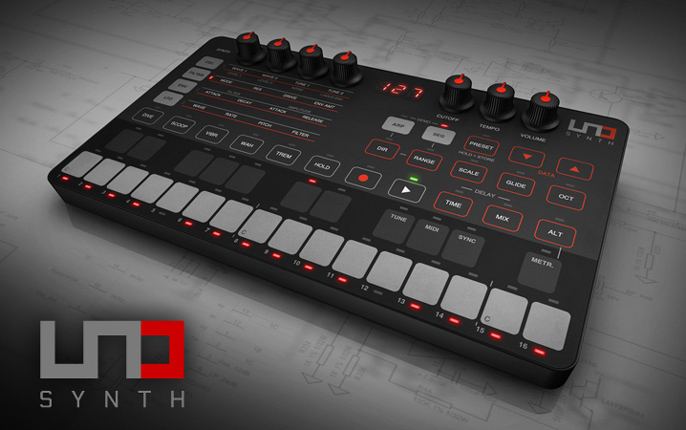Since we've seen some discussion on how UNO Synth stacks up against some synths that may appear similar at first glance, let's start with a comparison that explains how much more you get with UNO Synth. First, let's compare to one that seems to come up the most:
1. UNO Synth has a wider sound palette, not just bass:
- More waveforms: 3 with PWM and a waveform shaper on both OSC that allows more creative “morphed” waveform to be generated, vs Volca “selector”. Plus UNO Synth has white noise, while Volca Bass does not.
- Multimode filter (LPF, HPF, BPF) with drive circuit vs Volca Bass's 2-pole LPF.
- Wider number of LFO modulations waveforms: 6 vs their 2 = More sounds, wider sound pallette.
- More envelopes controls on Filter and Amp
- Delay effect (synced w/tempo) vs no effects
2. Usability
- 100 presets vs none, which makes UNO Synth much more flexible and usable for sound storage and recall and ease of use. Presets also include sequences and arpeggiator settings as well.
- Full 27 note chromatic keyboard that doubles as a scale keyboard (and step sequencer) with 13 scales vs their 16 note chromatic keyboard
- UNO Synth has an arpeggiator with 10 arpeggio modes on 4 octaves vs none
- Our Sequencer can be programmed both in real-time (like Volca) but also step by step and we do have more parameters automatable for much more complex and animated sequences
- UNO Synth has 40 controls on board (excluding the keyboard) vs 21 on Volca Bass
3. Integration with other gear
- UNO Synth has MIDI IN/OUT while Volca Bass has just MIDI IN
- USB MIDI IN so no interface is needed to connect UNO to Mac/PC or mobile (Volca Bass does not)
- UNO Synth has an audio input to mix line signal directly with no need for a mixer
- All UNO Synth parameters can be controlled via MIDI CC, while Volca Bass has a limited set (no filters, no waveforms)
- UNO Synth can run on batteries (like Volca Bass) or any other 5V USB power-source with no need for a dedicated PSU
So, above and beyond the direct comparison above, you can basically get - at a sub-$200 price point - a quality true analog synth with features that can typically only be found only on synths that cost up to twice as much or more.
Also, at less than $200, UNO Synth is comparable to mid-priced software instrument plug-ins, but for that you get a true analog synthesizer that can also easily integrate into a studio setup (but not only there).

